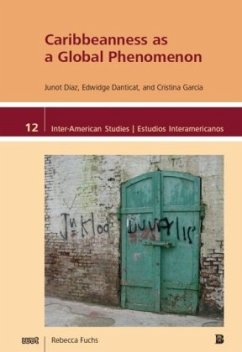In their fictional works, the Caribbean diaspora writers Junot Díaz, Edwidge Danticat, and Cristina García, who live and write in the United States, grapple with the con tinuing impact that coloniality, the ideology behind colonialism, has in the Caribbean. In dialogue with Caribbean theory and Walter Mignolo s border thinking, this study examines how texts by Díaz, Danticat, and García render coloniality visible and how they offer strategies of plurality and border crossings as a means of liberation and epistemic decolonization, contesting absolute and universal positions of power. This book demonstrates that Caribbean and Western knowledge systems can be read in dialogue, which yields new strategies for solving complex problems such as inter cul tural conflicts and asymmetric power relations. In its potential application to other contexts, Caribbeanness gains global relevance.
In a well-crafted and balanced argument (focusing on Cuba, the Dominican Republic and Haiti) Rebecca Fuchs makes a signal decolonial-ethical move in scholarship: aware of the pitfalls of area studies, according to which First World scholars studied Third World Cultures, she aims instead to contour Caribbeanness rather than defining or speaking for it. For this reason alone, the book is a must read. How-ever, and because of it, Cristina García s, Junot Díaz s and Edwidge Danticat s story-telling acquires a new meaning under Fuchs s ethical positioning. Walter D. Mignolo,
William H. Wannamaker Professor of Literature, Duke University
In a well-crafted and balanced argument (focusing on Cuba, the Dominican Republic and Haiti) Rebecca Fuchs makes a signal decolonial-ethical move in scholarship: aware of the pitfalls of area studies, according to which First World scholars studied Third World Cultures, she aims instead to contour Caribbeanness rather than defining or speaking for it. For this reason alone, the book is a must read. How-ever, and because of it, Cristina García s, Junot Díaz s and Edwidge Danticat s story-telling acquires a new meaning under Fuchs s ethical positioning. Walter D. Mignolo,
William H. Wannamaker Professor of Literature, Duke University

